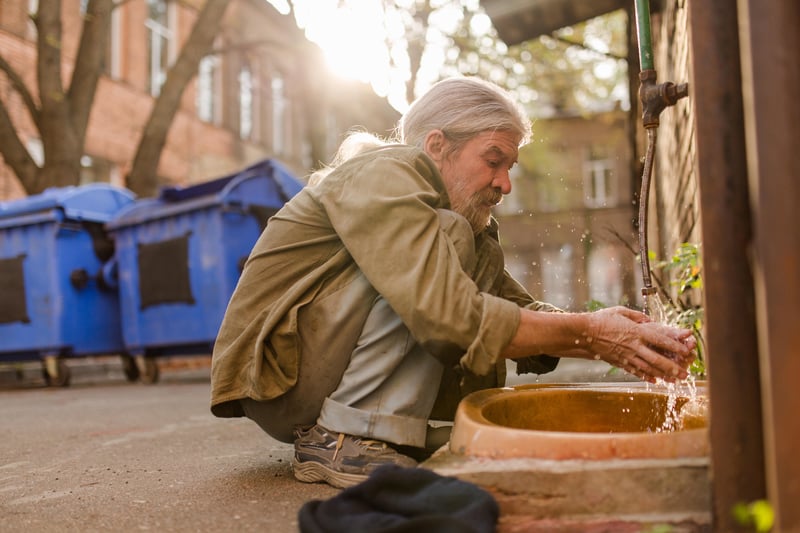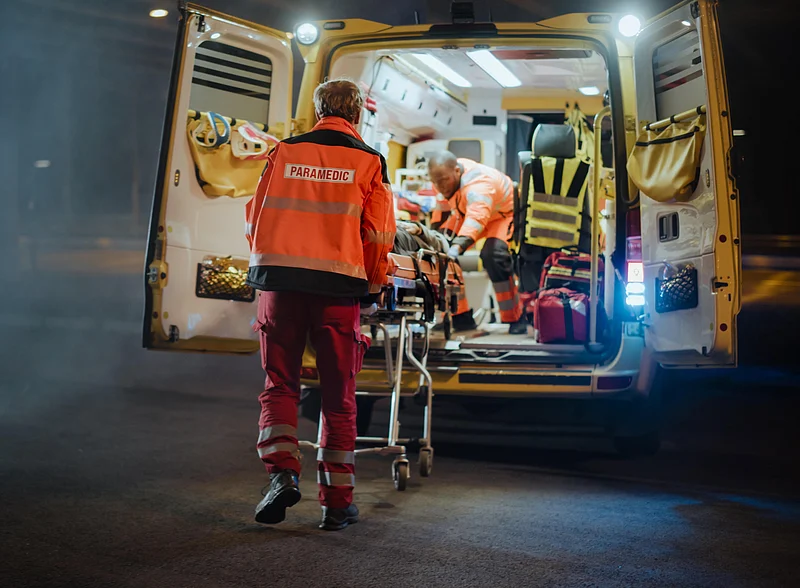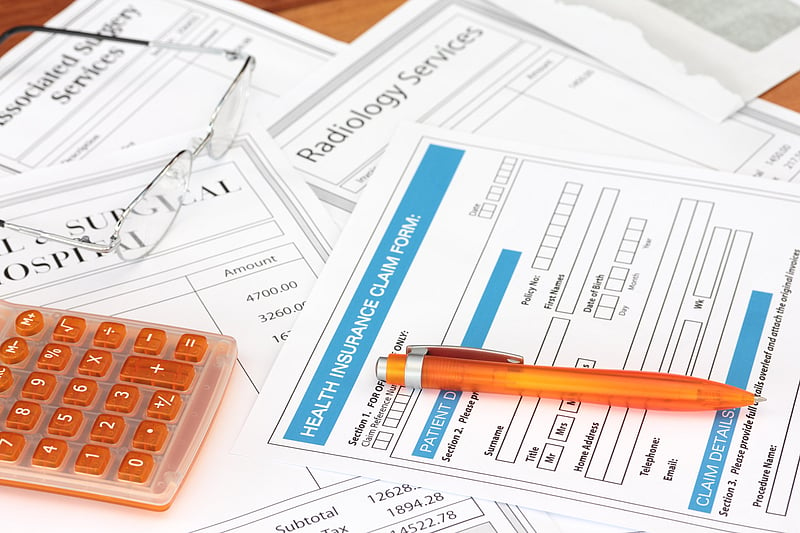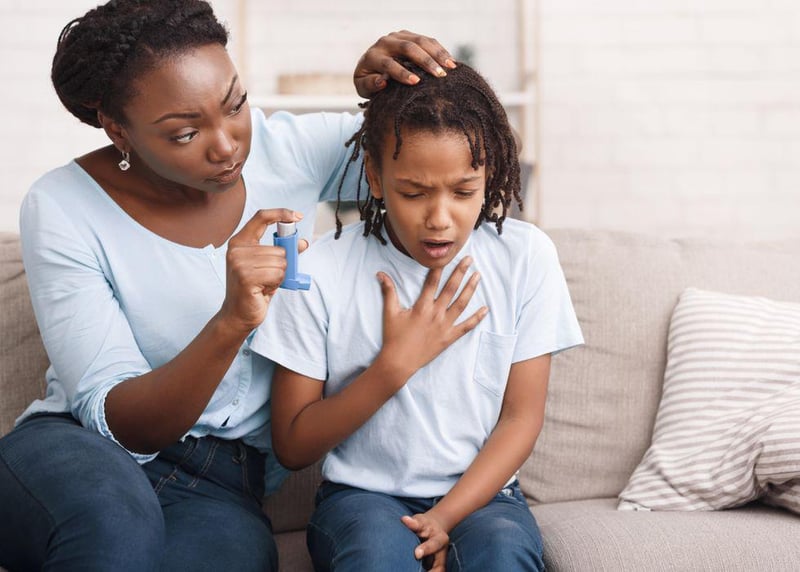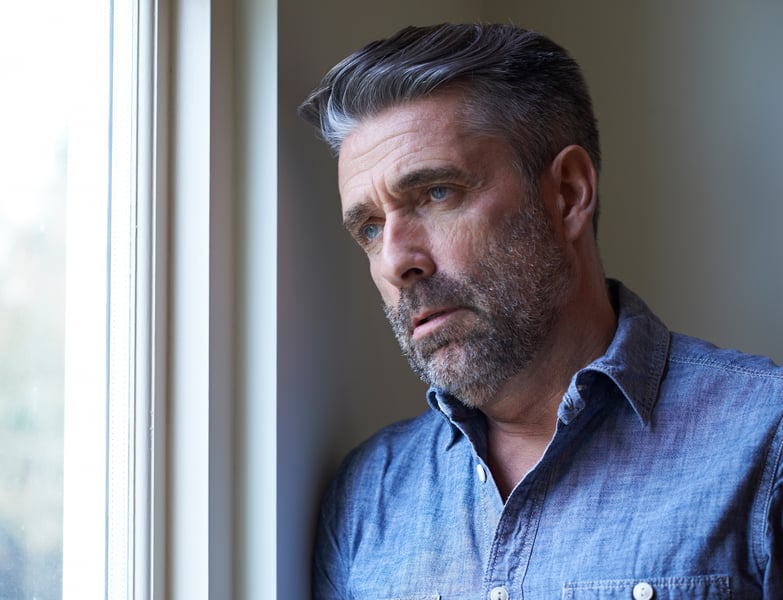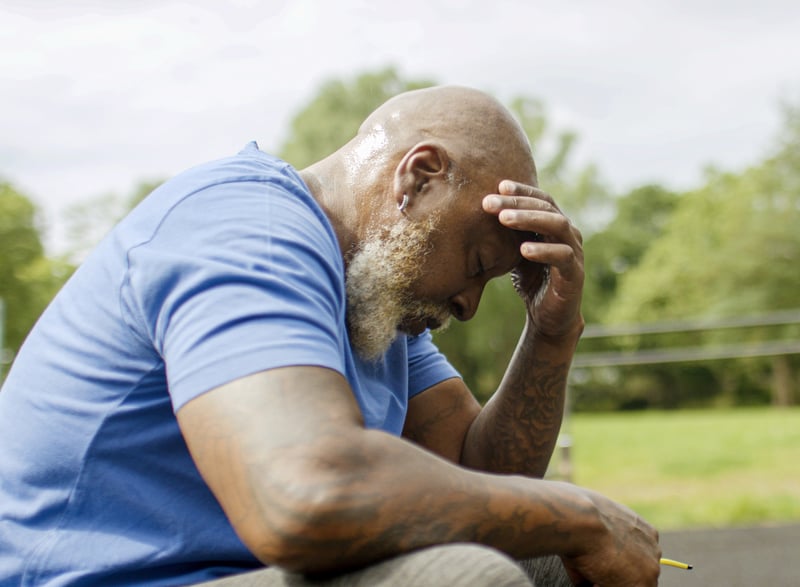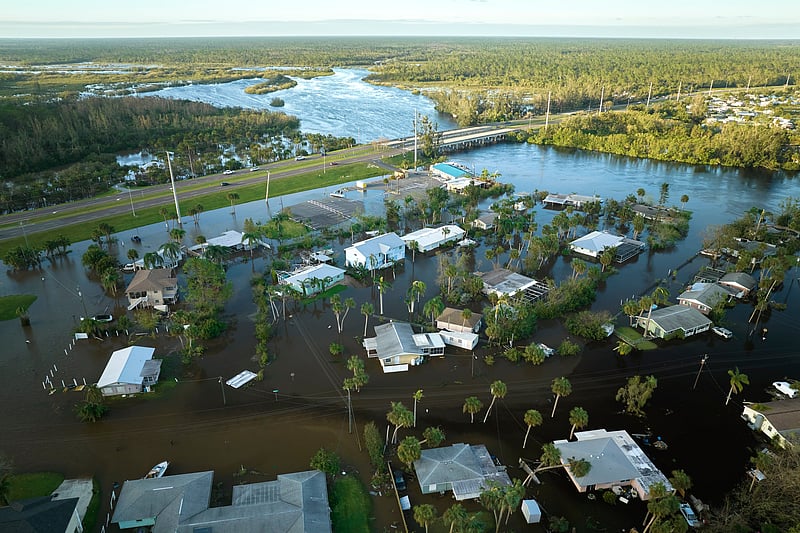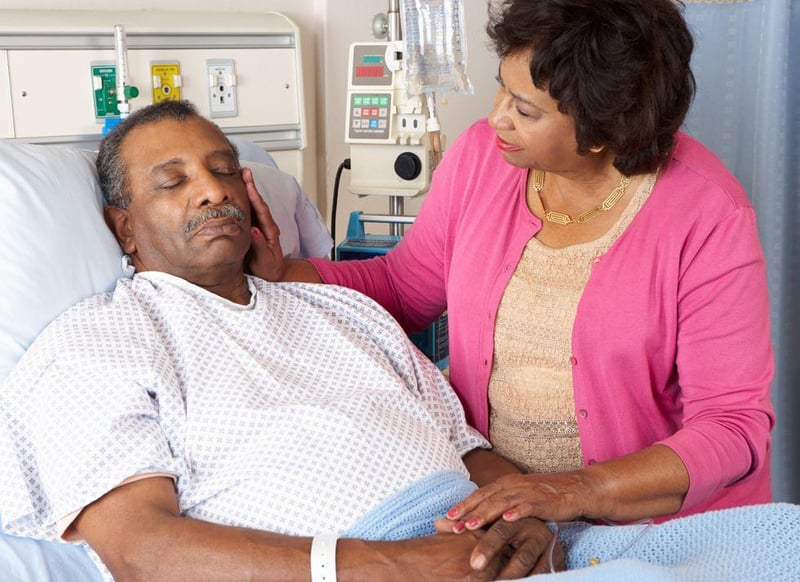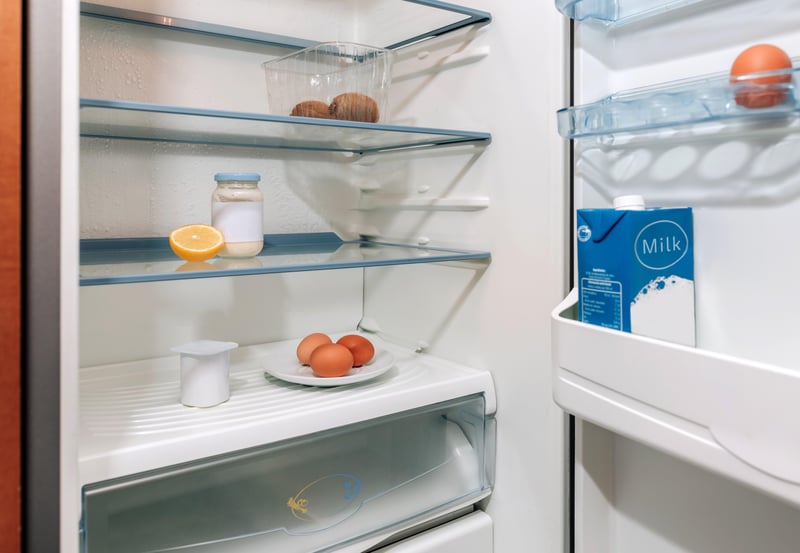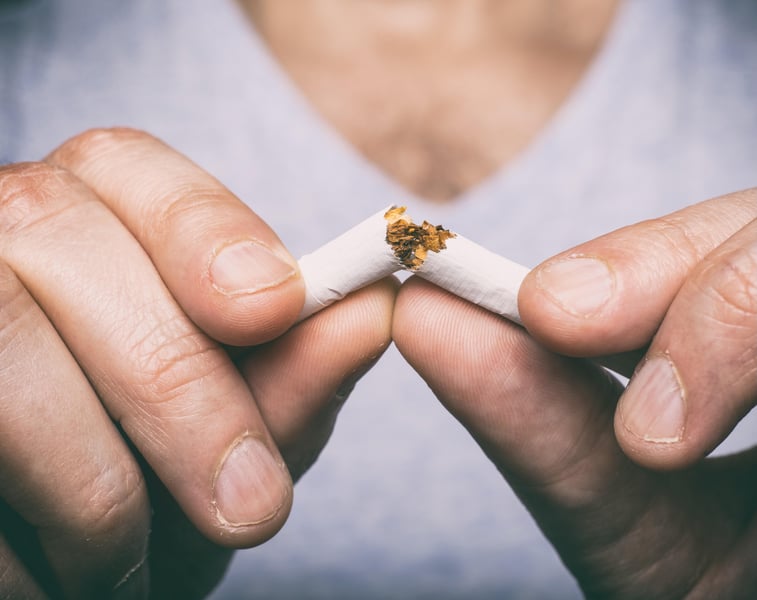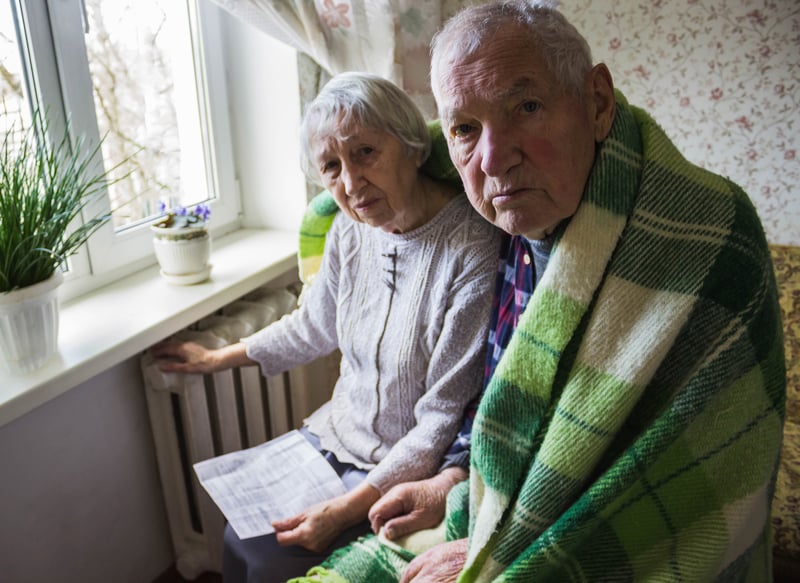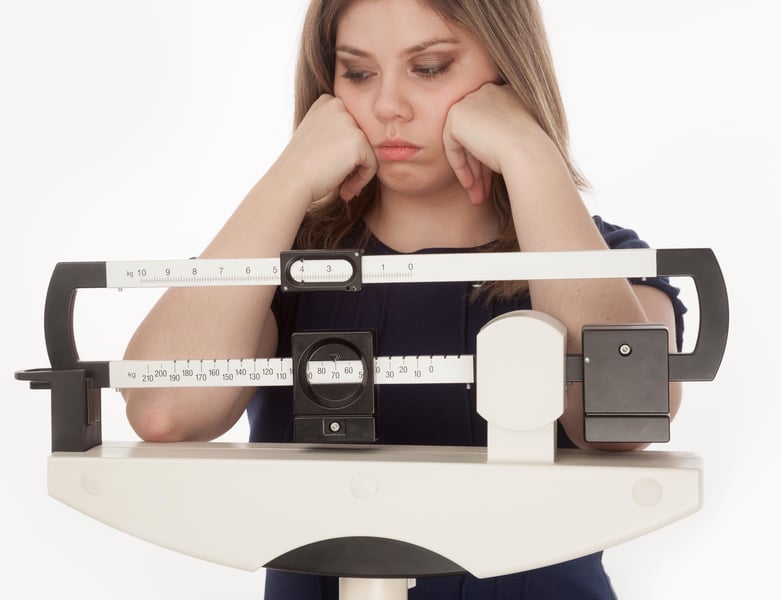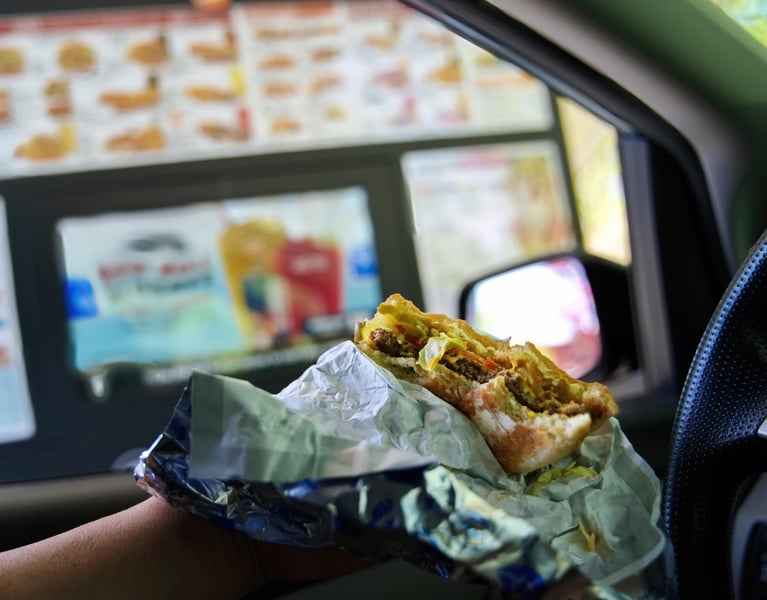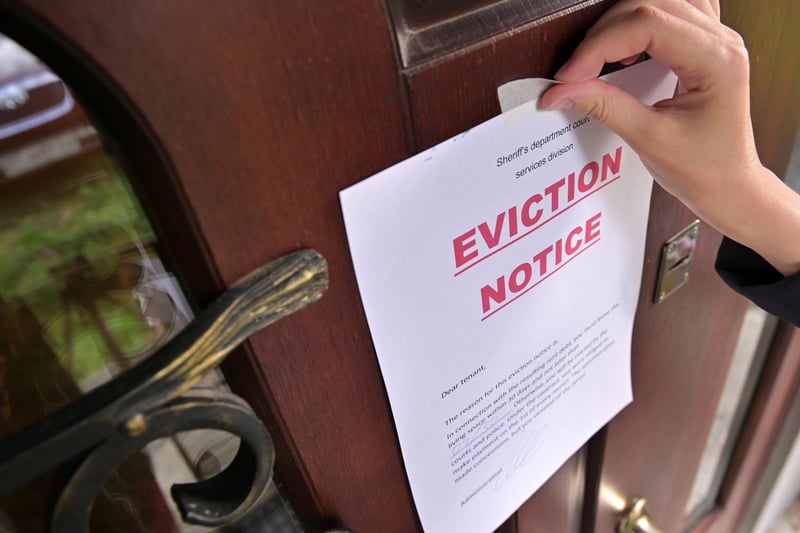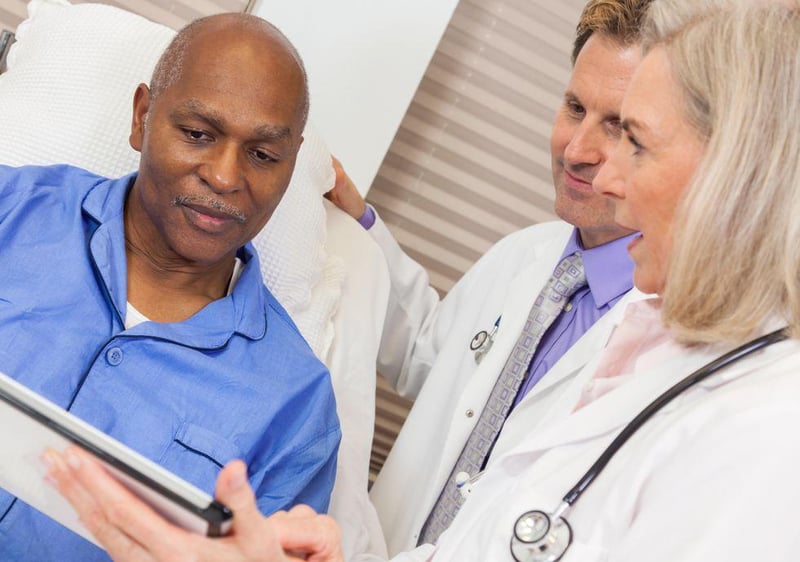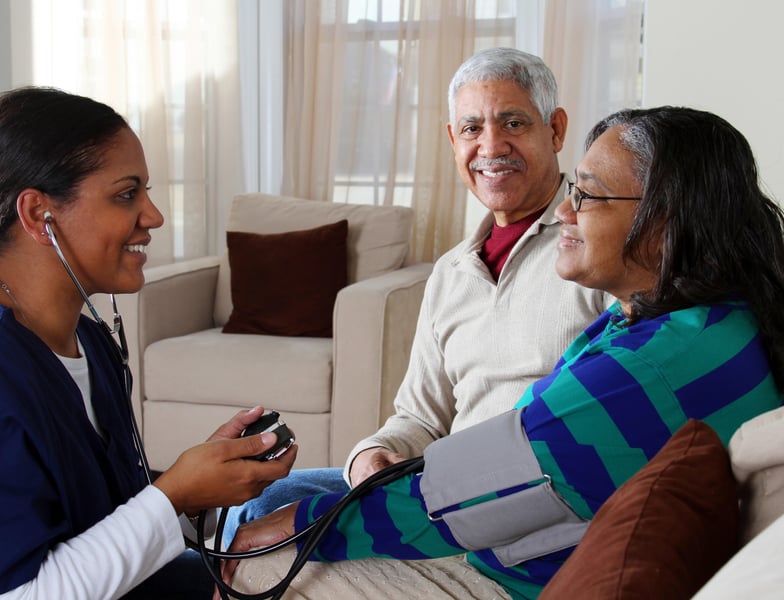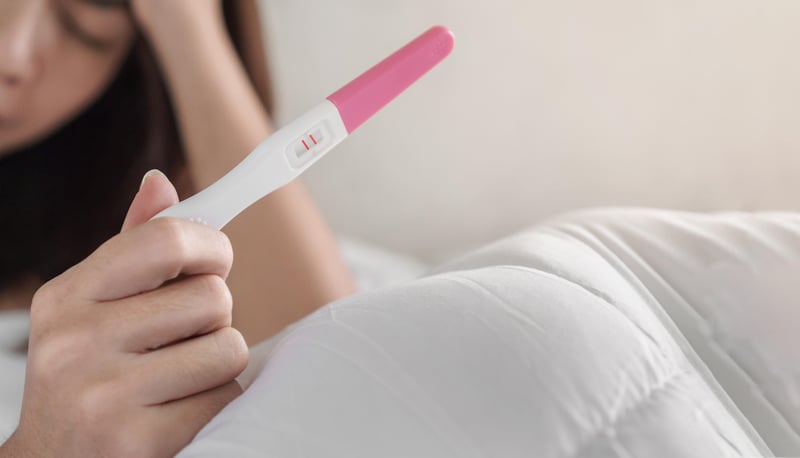Get Healthy!
Results for search "Economic Status".
25 Sep
Surprising Surge in Memory Struggles Among U.S. Adults Under 40
"Challenges with memory and thinking have emerged as a leading health issue reported by U.S. adults," especially those under 40, according to the author of a new study in the journal Neurology.
Health News Results - 148
WEDNESDAY, Jan. 21, 2026 (HealthDay News) — Women who breathe wildfire smoke during pregnancy, especially in late stages, may put their offspring at greater risk of autism, a new study of California births suggests.
Researchers found that exposure during the third trimester, when the fetus&rsq...
- I. Edwards HealthDay Reporter
- |
- January 21, 2026
- |
- Full Page
The stress of living in a poor neighborhood might contribute to higher rates of aggressive prostate cancer in Black men, a new study warns.
Black men are more than twice as likely to die from prostate cancer than white men, and more likely to develop it as well, the researchers no...
- HealthDay Reporter
- Dennis Thompson
- |
- July 16, 2024
- |
- Full Page
Financial stress persists even though rising inflation rates have eased, and the group feeling the pinch most acutely is in its peak earning years, a new poll shows.
"Our biggest surprise from this poll is that the age group most likely to be affected or stressed by pressures on personal finances is not the group whose incomes are more likely to be 'fixed' by reliance on Social Security o...
- HealthDay Reporter
- Carole Tanzer Miller
- |
- July 12, 2024
- |
- Full Page
If you and your partner fall silent when vexing money issues arise, new research suggests you are not alone.
A team from Cornell University found that the more stressed people were about their finances, the less likely they were to discuss those concerns with their romantic partners.
The findings were published recently in the
Living in a poor and unhealthy neighborhood could nearly double a person's risk of heart disease and stroke, a new study says.
The findings indicate that all the factors that make for a crummy neighborhood -- air and water pollution, toxic sites, few parks, tons of traffic -- play a ...
- HealthDay Reporter
- Dennis Thompson
- |
- March 28, 2024
- |
- Full Page
Preliminary data from the largest survey examining the quality of life for transgender and nonbinary Americans show they suffer high levels of unemployment and harassment.
In the early findings, released Wednesday, the National Center for Transgender Equality gathered responses on 600 questions from more than 92,000 transgender and nonbinary Americ...
- HealthDay Reporter
- Robin Foster
- |
- February 8, 2024
- |
- Full Page
Older adults who live in distressed or disadvantaged communities are less likely to attend cardiac rehabilitation after common heart procedures, new research shows.
The study looked at Medicare beneficiaries' attendance at these medically supervised exercise and education programs after coronary revascularization between 2016 and 2018.
Coronary revascularization includes procedures ...
- HealthDay Reporter
- Cara Murez
- |
- October 25, 2023
- |
- Full Page
Americans are losing sleep over worries about money, a new survey reveals.
The American Academy of Sleep Medicine (AASM) polled about 2,000 U.S. adults, finding that 69% reported lost sleep due to concerns about job security and 75% were kept up with ...
- HealthDay Reporter
- Cara Murez
- |
- October 11, 2023
- |
- Full Page
Planning for your long-term financial future doesn't just make good economic sense -- it could also save your life.
People in both the United States and the United Kingdom have a higher risk of dying prematurely if they aren't engaged in long-term financial planning, according to a report published online Sept. 27 in
New parents bringing home their bundle of joy often carry something else with them as they leave the hospital: medical debt.
That's according to new research from Michigan Medicine that found postpartum women are more likely to have medical debt than those who are pregnant.
The researchers studied this by evaluating collections among a statewide, commercially insured cohort of more ...
- HealthDay Reporter
- Cara Murez
- |
- September 29, 2023
- |
- Full Page
A new study suggests there may be a link between job loss and miscarriage or stillbirth.
The risk of miscarriage or stillbirth doubled after a pregnant woman or her partner lost a job, European researchers found. Their study was published Sept. 28 in the journal Human Reproduction
- HealthDay Reporter
- Cara Murez
- |
- September 28, 2023
- |
- Full Page
As working class neighborhoods gentrify, you'll likely see rents rise, pricey restaurants move in -- and maybe also a rise in gunshot wounds, researchers say.
In U.S. neighborhoods that gentrified, gun injuries were 62% higher than they were in similar neighborhoods that hadn't gone upscale, according to a new study.
Overall firearm incidence was also 26% higher in these gentrifyin...
- HealthDay Reporter
- Cara Murez
- |
- September 21, 2023
- |
- Full Page
Perhaps succumbing to fraudsters or facing mounting bills, older Americans begin losing wealth in the years preceding a definitive dementia diagnosis, new research shows.
For example, the median household net worth of the seniors in the study dropped by more than half in the eight years before they were diagnosed with dementia, but dipped much less for folks who retained their mental capa...
- HealthDay Reporter
- Ernie Mundell
- |
- September 18, 2023
- |
- Full Page
Going vegan doesn't have to mean going broke, with new research finding that steering clear of meat and dairy can lower food costs by about 16%.
"A vegan diet based on fruits, vegetables, grains and beans has always been a more affordable diet than one that includes meat, dairy and other animal products,"said study author
- HealthDay Reporter
- Alan Mozes
- |
- September 6, 2023
- |
- Full Page
Red tape is getting in the way of cancer patients receiving the treatment they crucially require, a new study has found.
Patients were 18% more likely to experience cancer care delays or be unable to stick to a treatment plan if they had to fill out a lot of paperwork, compared to patients who faced less red tape, the researchers found.
Results also showed that the more paperwork a ...
- HealthDay Reporter
- Dennis Thompson
- |
- September 1, 2023
- |
- Full Page
When factoring in why children get asthma, a child's neighborhood may be important to consider.
New research finds that living in a neighborhood during early childhood that has better access to resources was associated with lower asthma incidence. Better resourc...
- HealthDay Reporter
- Cara Murez
- |
- August 31, 2023
- |
- Full Page
The American middle-class squeeze has grown even worse in recent years, with many in the "forgotten middle"facing financial pressure and poor health as they near retirement age, a new study reports.
Essentially, the U.S. middle class has split in two, and those relegated to the lower-middle are facing tough times in retirement, said lead researcher
- HealthDay Reporter
- Dennis Thompson
- |
- August 24, 2023
- |
- Full Page
With 2023 predicted to be the hottest year on record, a new study is pointing to another potential consequence of heat waves: faster declines in older adults' memory and thinking skills.
The study, of nearly 9,500 older U.S. adults, found that those with greater exposure to heat waves over 12 year...
- HealthDay Reporter
- Amy Norton
- |
- August 24, 2023
- |
- Full Page
Death rates skyrocket during extreme weather events among the most vulnerable Americans, especially those from minority groups.
A study looking at hurricanes over more than three decades showed that their impacts varied and were driven by differences in social, economic and demographic factors such as race.
"Really, we wanted to understand what the comparative impact was over time ...
- HealthDay Reporter
- Cara Murez
- |
- August 16, 2023
- |
- Full Page
What researchers call 'social factors' are largely responsible for Black Americans having a greater risk of death from heart disease than whites, according to a new study.
Among the social factors that contribute to this racial disparity are unemployment, low income, lack of regular access to health care and lack of a partner, Tulane University researchers said.
"For so many years w...
- HealthDay Reporter
- Cara Murez
- |
- August 15, 2023
- |
- Full Page
The federal government recently stopped pandemic-related emergency food aid, leaving perhaps 2 million more Americans without enough to eat.
Emergency allotments in the Supplemental Nutrition Assistance Program (SNAP), also known as food stamps, ended in March in all states that hadn't already cut them.
After this temporary increase in SNAP benefits ended, recipients experienced a 2...
- HealthDay Reporter
- Cara Murez
- |
- August 14, 2023
- |
- Full Page
Growing up in poverty may harm the structural wiring of a child's brain, a new study claims.
Researchers from Washington University School of Medicine in St. Louis found a link between both neighborhood and household poverty and the brain's white matter tracts. These let the brain communicate between its regions and are important for processing information.
"White matter integrity i...
- HealthDay Reporter
- Cara Murez
- |
- June 28, 2023
- |
- Full Page
Folks who are loaded down with medical debt are less likely to survive a bout of cancer, a new study reports.
Researchers found that U.S. counties where more residents have medical debt in collections also had more cancer deaths, compared to counties with less medical debt.
"This association was seen for all cancers combined, and the five major cancer types: lung, colorectal, pancre...
- HealthDay Reporter
- Dennis Thompson
- |
- June 7, 2023
- |
- Full Page
The high cost of -- everything: Rising inflation rates are ramping up anxieties among some groups of Americans much more than others, a new study reports.
Women, middle-age adults and people with less education or lower pay are feeling much more stress over higher prices, as well as people who were previously married but are now widowed, divorced or separated, according to findings publi...
- HealthDay Reporter
- Dennis Thompson
- |
- May 16, 2023
- |
- Full Page
Quitting smoking may leave you with more money for food.
Having a tobacco smoker quit is not just a boon to lung health. In poorer families, it can also help prevent hunger, according to new research from the University of Minnesota School of Public Health.
"We aimed to explore if tobacco cessation could improve food security,"said lead author
In U.S. states that provide financial assistance for low-income families, the difference is evident in children's brains, researchers report.
Their study found disparities in brain structure between children from high-income households compared to low-income households. However, the disparity was more than a third lower in states offering greater cash assistance to low-income families, c...
- HealthDay Reporter
- Cara Murez
- |
- May 3, 2023
- |
- Full Page
While COVID-19's toll on health and wellness has been obvious, the virus has also hit people in the wallet.
A new study links surviving COVID to financial challenges later, especially for folks who were hospitalized with the virus.
"More than half of American...
- HealthDay Reporter
- Cara Murez
- |
- May 1, 2023
- |
- Full Page
While overall support for childhood vaccines remains strong, a new UNICEF report documents a significant decline in the public's faith in the importance of these vaccines.
Confidence in childhood immunizations dropped by up to 44 percentage points in some countries during the pandemic, according to the rep...
- HealthDay Reporter
- Cara Murez
- |
- April 21, 2023
- |
- Full Page
Many Americans went hungry in 2021, including disproportionate numbers of people with disabilities and single parents, a new government report shows.
Experts are concerned that things may have only gotten worse.
"These data likely do not reflect what is going on currently as pandemic programs end and inflation is affecting food prices,"explained
For people with epilepsy, living in lower-income neighborhoods is associated with worse mental functioning, new research suggests.
For the study, the researchers looked at the memory, thinking ability and mental health of people with epilepsy, and found differences based on where they lived. Brain-health issues were more common among those from disadvantaged areas with fewer educational a...
- HealthDay Reporter
- Cara Murez
- |
- April 20, 2023
- |
- Full Page
Patients with a common vascular disease that causes blockages in their leg vessels had both worse symptoms and outcomes if they were Black or poor, new research finds.
The study from Michigan Medicine looked at more than 7,000 patients with peripheral arterial disease (PAD) who had a lower extremity bypass operation to improve circulation. PAD involves plaque blocking the vessels that ca...
- HealthDay Reporter
- Cara Murez
- |
- April 20, 2023
- |
- Full Page
Poverty is the fourth-greatest cause of death in the United States, according to new research.
Researchers at the University of California, Riverside estimate that poverty was associated with 183,000 deaths in 2019 among people 15 years and older.
And that's a conservative estimate, they say, because the year was just prior to the COVID-19 pandemic.
"Poverty kills as muc...
- HealthDay Reporter
- Cara Murez
- |
- April 18, 2023
- |
- Full Page
Financial stress and work lost to cancer treatment affects patients and their partners alike.
Partners also experienced pain, fatigue and sleep issues owing to these fiscal worries, a new study found.
"We know that financial toxicity or hardship is a significa...
- HealthDay Reporter
- Cara Murez
- |
- April 12, 2023
- |
- Full Page
When Americans have medical debt, it's typically to a hospital, according to new research.
The Urban Institute found that more than 15% of non-elderly adults in the United States have past-due medical debt. Nearly 73% owe some or all of that money to hospitals.
"These
Young adults in the United States carry an increasing burden of heart health risk factors, making it more likely they'll suffer a heart attack and stroke as they age, a new study warns.
More adults ages 20 to 44 are obese and diabetic than a decade ago, and they are more likely to have poorly controlled blood pressure, according to the study published March 5 in the
Americans who live near a "food swamp" may have a higher risk of suffering a stroke, a preliminary study finds.
A number of studies have looked at the health consequences of living in a so-called food desert -- areas with few grocery stores or other options for buying fresh food.
Food swamps are different: The term was coined to describe communities where fast food restaurants, conv...
- HealthDay Reporter
- Amy Norton
- |
- February 2, 2023
- |
- Full Page
Hundreds of rural hospitals across the United States are teetering on the edge of closure, with their financial status increasingly in peril, a new report reveals.
More than 200 rural hospitals are at immediate risk of closure because they aren't making enough money to cover the rising cost of providing care, and their low financial reserves leave them little margin for error,
Most working-age Americans get health insurance through their employer, but even they are finding it tougher to afford medical care these days, a new study shows.
Researchers found that over the past 20 years, a growing number of Americans with job-based health insurance have been skipping medical care due to costs. Women have been particularly hard-hit.
Being evicted can have a significant impact on a person's health, according to new research.
In U.S. counties where eviction rates were elevated, death rates were higher for all causes, especially if those areas were home to a higher proportion of Black residents and women.
- HealthDay Reporter
- Cara Murez
- |
- December 29, 2022
- |
- Full Page
As the United States moves towards a world in which electric vehicles (EVs) have fully replaced fossil fuel-driven engines, can Americans look forward to reliably cleaner air and better health?
Absolutely, a new study predicts.
By 2050, researchers say, th...
- HealthDay Reporter
- Alan Mozes
- |
- December 14, 2022
- |
- Full Page
Bees, in their role as master pollinators, increase crop yields, leading to more production of healthy fruits, vegetables and nuts.
But new research claims that the challenges these important insects face from changes in land use, harmful pesticides and climate change is affecting food production, leading to less healthy food in global diets and more diseases causing excess deaths.
- HealthDay Reporter
- Cara Murez
- |
- December 14, 2022
- |
- Full Page
Insulin pumps can help folks with type 1 diabetes get better control of their disease and minimize how often they inject insulin, and use of the devices has taken off in the past 20 years.
That's the good news from a new study.
The not-so-great news is that a large gap in wh...
- HealthDay Reporter
- Denise Mann
- |
- December 13, 2022
- |
- Full Page
If someone is stricken with a blood cancer or life-threatening clot, they'll probably fare better if they are white and wealthy, three new studies show.
The ongoing impact of patient race and income to medical outcomes was in the spotlight Saturday in New Orleans at the annual meeting of the American Society of Hematology (ASH).
In one study, a team led by
Researchers have discovered a link between access to welfare payments and foster care.
As many as 29,000 fewer children may have entered the foster care system during the 12-year study if U.S. states had made it easier for poor families to receive cash through the federal Temporary Assistance for Needy Families (TANF) program.
"The relatively small amount of income provided through...
- HealthDay Reporter
- Cara Murez
- |
- December 7, 2022
- |
- Full Page
Millions of Americans will enjoy a hot, nutritious Thanksgiving meal thanks to their local food pantry, often staffed by volunteers. Now, new research spotlights just how important these charities are.
Families who rely on pantries for food assistance come away with $600 to $1,000 in free meals and produce every year, after taking into account time, transportation and other costs associ...
- HealthDay Reporter
- Alan Mozes
- |
- November 23, 2022
- |
- Full Page
Whether you survive a bout with cancer may depend, in part, on where you live.
Researchers at the American Cancer Society and Clemson University in South Carolina found a 20% higher death rate for all cancer types in the communities with the most racial and economic segregation.
For lung cancer, the death rate was 50% higher in the most segregated counties.
"Many people livin...
- HealthDay Reporter
- Cara Murez
- |
- November 18, 2022
- |
- Full Page
One in 5 privately insured American adults hospitalized for a traumatic injury end up with medical bills they can't pay, a new study finds.
Among more than 3,100 working-aged insured adults who suffered a traumatic injury, the risk of incurring co-pays and deductibles they couldn't afford was 23% higher than among similar adults without traumatic injuries. These patients were also more li...
- HealthDay Reporter
- Steven Reinberg
- |
- November 15, 2022
- |
- Full Page
In a finding that challenges the notion that immigrants are freeloaders in the American health care system, a new study shows they are paying a lot more through health care premiums and related taxes than they actually use in care.
In fact, the amount that immigrants pay in makes up for some of the amount of health care that non-immigrants use in excess of what they pay.
"Some pol...
- HealthDay Reporter
- Cara Murez
- |
- November 10, 2022
- |
- Full Page
A new analysis illustrates the impact of the U.S. Supreme Court's decision to overturn Roe v. Wade: In numerous states, women now have no choice but to travel long distances to get an abortion.
One-third of American women of reproductive age must now drive excessive distances, the researchers reported. Twice as many women must now travel more than an hour to get abortion care. And some ar...
- HealthDay Reporter
- Cara Murez
- |
- November 1, 2022
- |
- Full Page







